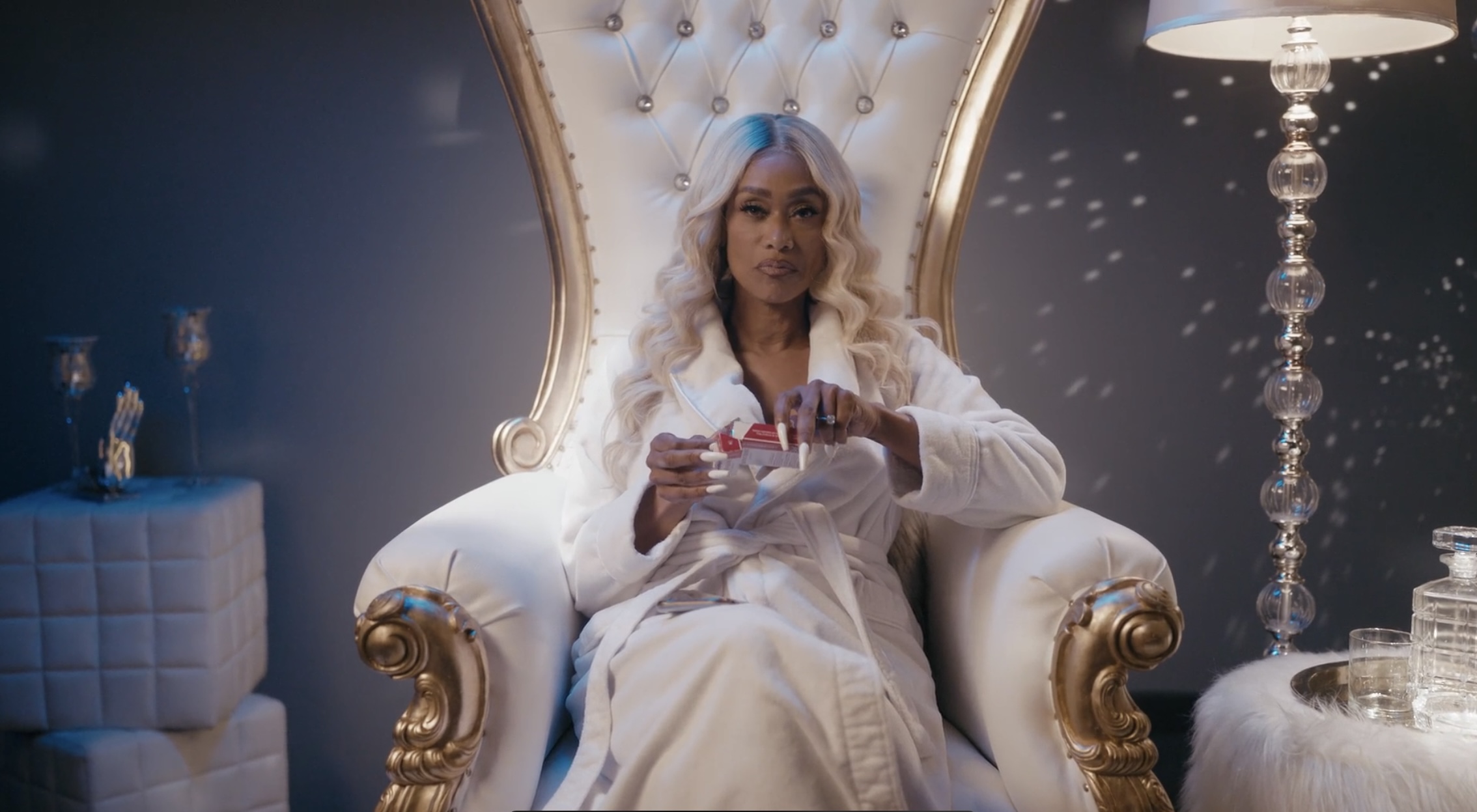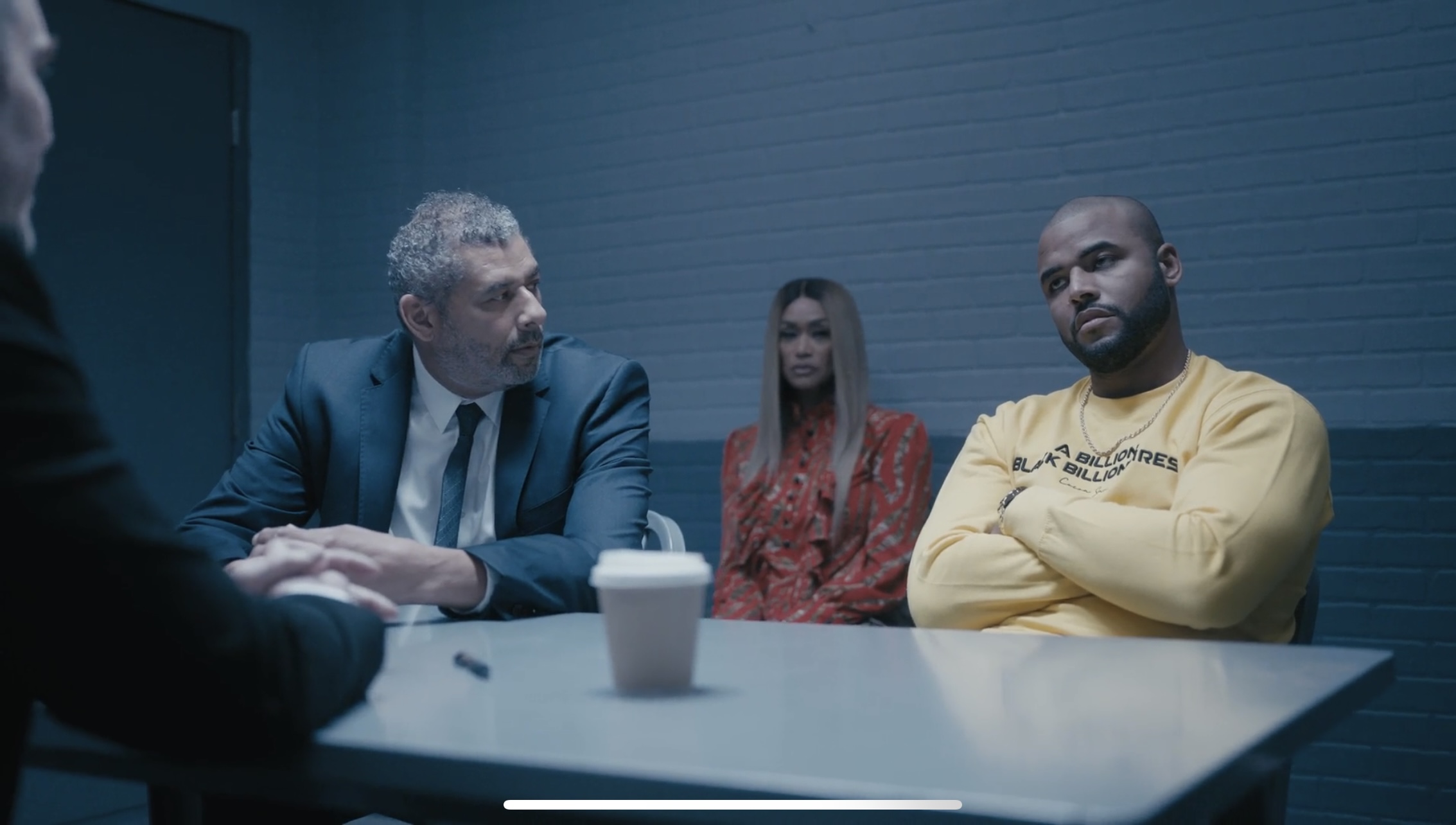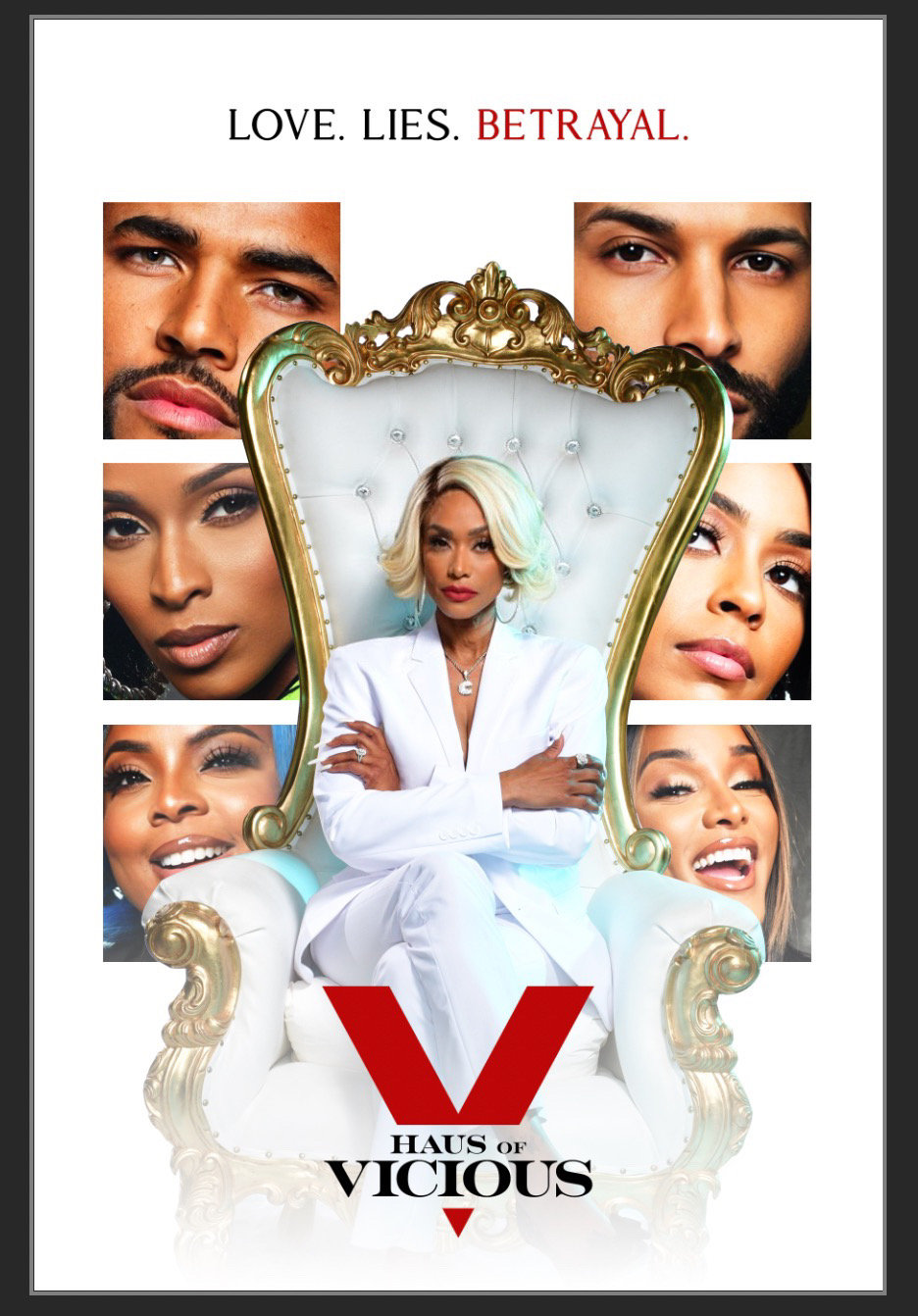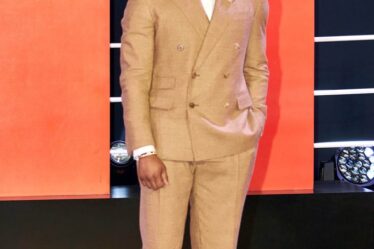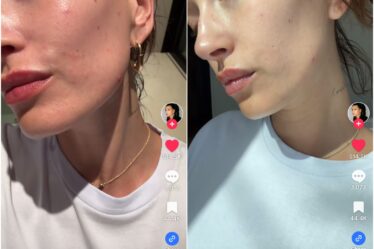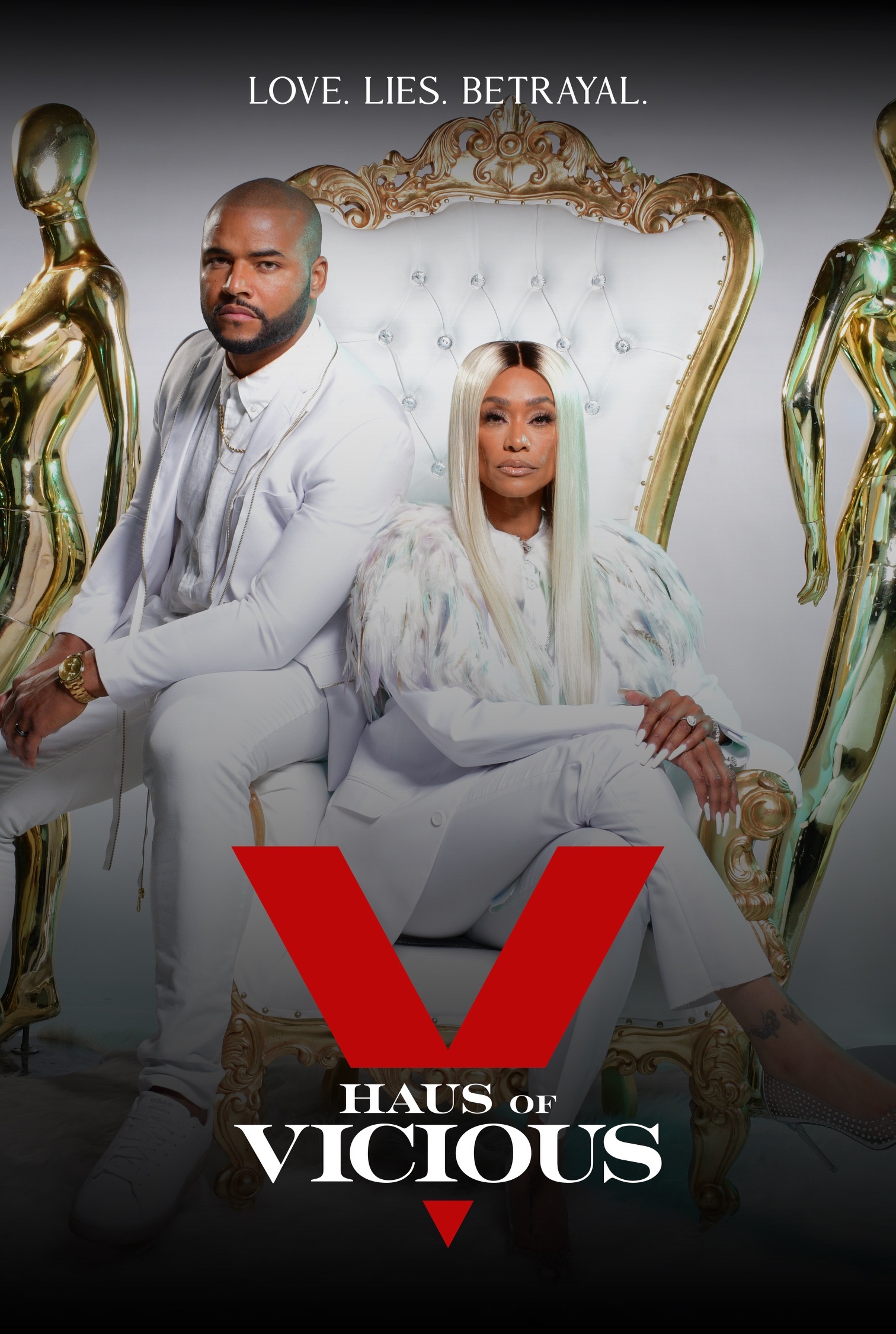
The world of Chantel Vivian—of BET’s Haus of Vicious—is one in constant scandal. Between managing her fashion label, dodging scheming staff, and surviving her narcissistic husband’s behavior that risks her losing it all, she’s a protagonist with the odds against her and the stakes raised higher than the heels she dominates the industry in. As the series’ first season comes to a close, Executive producer Tami Roman—who brings the character of Chantel to life—sits down with costar and TV husband, Redaric Williams to recount their experience making and filming the breakout series. Keep reading for more on the actors’ favorite moments and their Haus of Vicious season highlights.
Tami Roman: When we approached you about auditioning for Kane, what was that process like for you? What about the role resonated with you?
Redaric Williams: The process moved pretty quickly, actually. I don’t remember if I actually auditioned. What resonated with me initially was the people tied to the series. I saw you were involved and some producers that I worked with, and it was one of those where I was like, “Yeah, okay, this is something.”
TR: I think we did put you on tape because I had never seen your work.
RW: (Laughs) Yeah, you’re right! I just remember it was real quick. I remember everything happened really, really fast. And my main concern was who’s involved? Who’s a part of this project? When a lot of things move quickly like that, you want to see who’s tied to the project. You want to know that it is going to be something good and it’s something where I’m sure I’ll be in good hands.
TR: Yeah I completely understand that! You want to make sure it ain’t “BooBoo” and their cousin in there. (Laughs)
RW: (Laughs) Right! Then when I was breaking the character down a bit, and it felt like a good fit. TV is a lot different than when you’re doing a film, where you get everything ahead of time. It’s almost like you’re doing a stage play, and you can break it down and dissect it a lot differently. With TV, it’s more so an ongoing thing, just a waterfall that keeps coming out. So you’re picking it up as you go, and then you’re building on everything. So for me, it starts from breakdown, you get a script, and then you just build from there. You don’t want to start the character development with preconceived notions because then, all of a sudden, you realize that that isn’t even what it is, and they feed you a different backstory. So you just go from there, and you just build as you go.
TR: Are there any parts of Red, in his real life, that you drew from in order to play Kane? I know what my thoughts are and I have to say Red is completely different than Kane.
RW: That’s essentially what it was for me as well. I think I drew on everything that was a juxtaposition [of who I am] for the role because there were a lot of times where I would get the script, we’d go in to film the scene, and as I’m doing the scene, I’m really seeing how it’s written and how everything’s been tailored for this character to be just, no pun intended, but vicious. It’s just really, almost to the point where it was unbelievable. I feel like as a performer and as a creative in front of the camera, my sole job, what I’ve always remembered from my early days when I was training is there is power in uninhibited honesty. Just be honest, just be real, make it real! I just always want things to just be real. When someone’s watching it, I want them to suspend their belief for a moment like this person is actually just having a conversation with this other person, this is really happening. For me, some of the stuff was almost too vicious for reality, where I was like, I gotta bring some of who I am to this character to kind of bring it down, so you can actually believe, like, “I know that guy. Yeah, what he did was messed up and all that.” But we all know, whether it’s a con artist, whether it’s someone in your family who might be doing something messed up, there are likable moments. Moments where they’re throttled down into humanity, and you can almost start feeling for people in situations like that. So you really take a step back and say, “Hold on, what are they doing?”
TR: When we were having our conversations with the writers because I don’t know if any of the talents knows this, but for my partner, Jill Ramsay, who’s the creator of House of Vicious, these are kind of characters that she’s come across over the course of her vast career in the entertainment industry. Everybody is somebody at one point that she’s come across. So when we were talking to the writers, we really wanted Kane to be that character that people love to hate. When you say “He was so vicious,” the truth of the matter is, the character of Kane is based on a real person who was just that vicious, you know what I mean? And so to hear you say that you had to find those moments of redemption for yourself or those moments of empathy is refreshing.
RW: And that’s something that comes naturally for me as a performer, maybe because, as you said, I am the complete opposite. So for me, my ability to feel that empathy is what grounded me in the character and made it real for me. It was also the thought process of “this is what I have to do.” Sometimes you have to pull all the little tools out of your belt and see what you can do. Because really, the whole tether to create it was just making it real, that was all I wanted.
TR: I think that should be every actor’s start when they step into this space–make it real, make it authentic.
RW: I think De Niro had one of the best quotes. I mean, there are so many little gems you hear throughout the years. But because we do this as performers, we feel like whatever the character is, we want to add to that. And De Niro once said, “you just be you, it’s about authenticity and being organic, don’t feel like you need to bring anything to it, let that come.” And it’s hard to because essentially, acting is not acting, acting is reacting, you react to it in an organic way. You react in a way that you would naturally react at that moment. But everyone has moments of anger, fury, love, laughter and all of that, you just have to find those organic beats, those organic moments. It is harder done than said, so a lot of times, we have to pull out those tools from under the belt.
TR: I absolutely agree. What would you say is one of your favorite moments for Kane?
RW: There are so many, and it just evolved. I felt like they just kept getting better and better–all the way to the last scene. To be honest, in the very last scene we had, I was like, “That’s what I’m talking about.” Every time I thought I had a favorite moment, there was another one. Now, I’d say my favorite part is watching the fan’s reactions. (Laughs)
TR: Yeah, shout out to Tu-Shonda and Amaleka because I feel like they did their job. Every week I hear people like, “I can’t stand Kane, but God, I love Kane.” So I feel like we did what we wanted to do.
RW: And all that stems from the writing. It all comes from the writing. Writing is the lifeline, it truly is everything. It’s the bones. It’s the support structure.
TR: Yeah, well, I’ll tell you one of my favorite moments. It was when Kane was taken in for questioning. He’s sitting there, and they’re like, “Oh, your wife bailed you out.” And then [the audience] get outside, and you see Chantel rip him a new behind in the car. Now, the reason I love that scene is that it’s so completely opposite of our relationship. And I felt like you really brought that to life. It’s just like those characters Isaiah Washington and Terrence Howard portray, they are so good at being bad. And it was one of those moments where I was like, “Dang, he really listened to her.” And it looked so good because there’s a moment that Chantel and Kane have when he comes back to apologize because he feels like everything’s falling apart and he wants to get her back.
RW: That was one of those things I was talking about before we jumped into it. I remember saying, “Hey, can I tweak this a little bit? Because if you played it a certain way, it would seem vicious.” But you’re right, it was one of those moments. I loved the fact that you can go all the way in a show like that. For me, anyway, I watch certain scenes, but then when you’ve seen the show in its entirety, you’re like, “Oh, this whole thing is like this, and then it goes all the way here and then comes all the way back over here.” They did their due diligence as far as connecting everything and having it all feel cohesive. And that was great.
TR: I definitely think it all makes sense. And it helps when a person sees it from top to bottom. Because from the very first episode, it’s like you just dropping in on a moment in time in these two people’s relationship. You don’t know where they come from, their backstory, their history, and then all of a sudden, it’s like toxic dysfunction and anger. And when you watch it in its entirety, you really get to understand.
RW: I got some friends on the East Coast that were able to go from episode one to the current episode in a couple of nights, and I’ve binged watched myself, but –
TR: That’s the way people watch TV now, which is good, but also bad when you’re trying to get people to tune in on certain things. But, I guess, as long as they see it, that’s all I care about, to be honest. But to get back to it, what was your experience like working with me?
RW: I don’t want to say nightmare. That’s not really the word that encapsulates it. (Laughs)
TR: (Laughs)
RW: Honestly, this just echoes what I’ve already been saying when I’ve been talking to others about working with you. You are very giving and I’ve said that on more than one occasion. You’re such a giving actor and performer in the sense that when you’re in the scene, you’re always in it. That was so refreshing and inspiring to me. I was like, “Oh man, she’s in it.” You were all the way there every time. And I was just like, “This is good.” So that was my honest take on it. I was like, “Damn, she’s a hell of a performer.” And with whatever you were doing, you always made it better. I felt very safe. As far as momentum wise, you never drove anything in the wrong direction. Anyway, I could go on all day talking about how great it was working with you.
TR: Oh, stop it. But everyone I’ve worked with was always in it. I really felt like we were a family because I handpicked everyone for their role. When Jill sent me the script and I read it for the first time, I immediately started calling out names. I was excited that everyone wanted to participate and do me a solid.
RW: Yeah, a lot of times, it’s who you work with. I’ve realized that over the years, you could have the best job or the worst job based on the people you work with–that’s all. I’m sure there’s been a lot of times where you’re like, “Nah, I’m good on that,” because there’s no need to put yourself in an environment.
TR: Yeah, exactly. And now I want to touch on Kim Fields because I absolutely love her. And that was, again, another situation of calling up a friend and saying, “Hey, can you come and be a part of this project?” I didn’t want to embarrass myself in front of Kim because her mom was my acting coach so many years ago. But, I felt the extra pressure because Kim was there. And so, with Kim being there, I had to care.
RW: You care to the point where you went all the way there. You push it to the limit with every single scene. I’m telling you it was impressive. And this isn’t just an interview thing–I’ve said this to so many people. I was with one of my sisters, she’s like your biggest fan and I told her, “She’s real.” And when my sister was watching the show, she said “Tami was on it.”
TR: Thank you. Do you feel like this role helped you grow? Because I heard you in another interview say, “I’m always the handsome guy. I’m always somebody’s boyfriend.” So do you feel like Kane pulled anything else out of you that you can add to your arsenal?
RW: I’m always a guy that would come into a relationship. I’ve never been a married man, a man whose stakes are higher. I felt like the stakes were higher. So there were a couple of times just charging into a scene and I ran over the list of what’s at risk. What’s at stake? What are you trying to accomplish? And a lot of times it was higher. This is a guy who’s trying to hold this together and start building a family. It’s like everything’s a house of cards. But I was always ready to go. I think honestly, career-wise, what I took away from this role was an expanded view of the actor, specifically watching how dedicated of an actor you were in front of the camera, but also knowing that you were part of the production team. I previously thought you needed to be all-in on one thing–you can’t really multitask because you’ll only give it 80%. But that’s nonsense. It’s nonsense because I watch you give 110% and then 110% and then 110%. And then it’s like, “Oh, she’s working on another movie. She’s directing.” So in my mind, I’m like, “Man, you need to expand your horizons.” I think that was a very enlightening experience watching you work.
TR: A lot of people go, “You’re one of the hardest working women I know of.” And I really am. I don’t sleep. I’m always trying to figure out what’s the next thing. What else can I do? And so, even with the Haus of Vicious, I found myself music supervising, editing, and color correcting. We did everything on this production, so it was really a learning experience for me because although I’ve been an EP for other projects, it wasn’t this hands-on. It wasn’t this intensive–A lot of people don’t know, but we shot this show for a very small streamer, and it was only supposed to be 30 minutes an episode. But we eventually got an offer from BET, thank God–they’re amazing partners. They only want one-hour shows, so we had to find ways to stretch our 30 minutes of footage to an hour.
RW: It did not compromise quality at all. It’s crazy to see it come together. I was like, “Whoa, okay, you really put some touches on it.”
TR: I’ll take my flowers. I am thankful to have had this conversation with you. I’m thankful that you are a part of Haus of Vicious and my leading man. We’ve got so many great things for season two that I think a lot of people are going to be surprised about because that’s what our show is–high drama, high impact. There are a lot of twists and turns that are very unexpected.
RW: I’m curious to know how you approached this as an actress. How did you juggle wearing all those different hats?
TR: I wasn’t expecting to play Chantel, and one day, Jill, my partner, was like, “I want you to play Chantel.” And I was like, “What! Oh, God. I would love to.”
RW: I can’t even picture another Chantel.
TR: Thank you. I’m really happy to hear that because I threw out some names. I wanted to be completely sure because we’re legitimately sisters and sometimes when family works together, it blows up into pieces. I didn’t want that to happen with our relationship. But I’m happy that she wanted me to and I’m happy that I said yes because Chantel was definitely different for me.
RW: There are so many things that I’m learning from this conversation. I didn’t know that you weren’t initially thinking of yourself for that role. Did you ever feel uncomfortable wearing so many hats?
TR: I didn’t feel uncomfortable. I’m so serious about this acting thing. I’ve been in this business for almost 20 years, since 1993. So I’ve been chugging away at this a long time and I always say to people–because a lot of people don’t understand the business–some things may never come out. But that doesn’t mean we’re not putting in the work. So that’s been my journey–not everything made it to the screen. I’m very serious about acting. So I wasn’t uncomfortable with the acting. What was new for me was–you know, I don’t do drugs. But in real life, my biological father was a heroin addict and I saw him one time in my life. I went back to that day of how he looked, how he talked, how he acted. Lady Sings the Blues with Diana Ross is one of my favorite movies, along with a movie, you’re probably too young to know about, called Sparkle. They both had drug scenes and I wanted to be able to elevate to that.
RW: You definitely did. That was one of the things that I loved about your scenes–even though it was a television show, they felt so cinematic.
TR: I’m never uncomfortable when it comes to acting. It’s more a matter of how I approach this particular role and be able to make it feel like Tami versus–I didn’t want to be like Diana Ross in Lady Sings the Blues. I wanted it to be Tami’s version.
RW: Well, let me ask you this. Was it any different with your daughter being on the show?
TR: My kids grew up with me, so they know how I am. They know how I am when it comes to the craft. And they know how I am outside of the craft, I’m no-nonsense and I mean business. I asked Lyric to play this role and she didn’t want to, and I kept going, like, “Why not? It’s such a great role. I think you’d be great.” And so when she finally said yes, then I went, “Well, now you got to audition.” So she auditioned and everybody had to sign off on who they liked and they all liked her, and she got the role. That’s where I felt the work began. I didn’t want to smother her with anything. I let her do her own thing. She went to her own coach and I stayed out of it because I might be a bit much. I’m the acting teacher who’s cursing people’s kids out so I let her do her own thing. We worked on a short film that won a lot of awards, called Sundays at Noon, which was directed by Ka’ramuu Kush and written by Lyric. We did that a few years ago and it had a great run, but that was the first time we worked together. So this would be our second time actually being on the same project.
RW: She’s amazing. She has a very professional element about her. And now, I’m curious to know what your experience was like working with me.
TR: When you auditioned, I was immediately like, “Damn, he fine.” (Laughs) And then, I had to get past that because we needed Kane to be a certain type of person. When you read, it was like, “Yes, give it to him. He has it all.” And so my concern then was, is he going to give up? Because when you’re auditioning, you give it your all because you’re trying to get a job. But you did show up every time.
RW: It’s like those little nuggets I was saying. I think it was Cranston from Breaking Bad who was talking about the auditioning process, and I formed my own thoughts about this, and it’s similar. But basically, I don’t even think about the job. I’m like, “This is the job, and the only work is making it real for that moment.” So yeah, go ahead. I’m sorry, I just wanted to add that I treat auditions like jobs.
TR: I’m so happy that you acted that way. Because we’re not going to act like this isn’t the case with some other people who are cute. You are just the most humble guy. You came to work every day and gave 100% every frickin time. That’s why you’ve been working in this business for so long because of that energy and that attitude. I have the utmost respect for you.
RW: Yes, you know me. You give me a point and your coordinates, and boom, I’m there. I’m dropping in like paratroopers.
TR: This was good. I don’t think we’ve had an in-depth conversation like this. When people watch the show, I hope they understand Haus of Vicious more so than about fashion. To me, I feel like fashion is the backdrop. Fashion is the world where all of this is happening. But from my perspective, the show is about relationships–whether there’s toxicity and dysfunction. It’s about the dynamic of relationships. And what we’re stepping in on is the point before the change, the point before the transition. And so I hope that people just understand how we represent a relationship that you may know of, that you may see, that you could potentially be in. As the series evolves, you will see the evolution of those characters and how they overcome some of the trials and tribulations that are going on within those relationships. I hope this will help someone.
RW: That’s exactly how I looked at it. My brother was asking me what the show was about, and I said it’s really about relationships. When you come to a situation where it might be similar to somebody else’s life, who’s watching the show, they can kind of take from that. I’ve done that myself as well–whether it’s a book, movie, or TV show, there are these little life lessons in there. I feel like we often overlook that because it’s entertaining, but there are lessons in there. A lot of times, people will distract themselves with, say, fashion or whatever. So I think it’s good to know that it’s about something more than that.
TR: Hopefully, that’s coming across to everyone–love lies in betrayal.
Watch the season finale of Haus of Vicious tonight on BET at 9:00 PM EST

